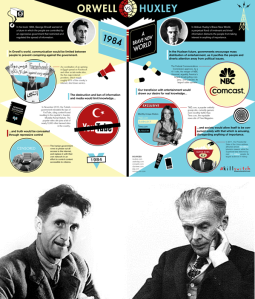“It is wrong and immoral to seek to escape the consequences of one’s acts.” ― Mahatma Gandhi
“A body of men holding themselves accountable to nobody ought not to be trusted by anybody.” ― Thomas Paine
In the context of the State, to whom is the governing class accountable? With the fundamental assumption that this class constitutes the leaders of a nation, it is automatically understood that their accountability is to the people whom they are supposed to be serving. In the specific setting of an ideal democratic society, leaders in government are technically known as “civil servants”. Through the instrumentality of suffrage, they are placed in different positions of leadership by the people themselves. In other words, an ideal government based on democratic principles is theoretically prime and foremost a government of the people and hence is expected to perform its functions for the people, i.e., to serve in the people’s interest. In this sense, the issue of accountability is a crucial one.
In the praxis–i.e., theory and practice–of statecraft, it is one of the most important foundations–if not the most important foundation–of honest-to-goodness public administration and management. Alongside the precept of accountability is that of transparency and together they constitute the twin pillars of integrity in government leadership. Accountability becomes genuine as it is strongly reinforced by transparency and transparency is the window through which the people are assured that their government leaders are truly accountable to them as they perform their respective duties in the nation’s interest. A deviation from this path of integrity casts a shadow of doubt on the leaders’ rectitude and makes their persons suspect as the jar begins to crack, so to speak. As the situation gets worse, the very democratic character of government itself is held in abeyance, then severely challenged and repudiated at its worst point of deterioration. At this juncture, the breakdown of democracy becomes real and absolute. Integrity gets ruined with the bankruptcy of accountability and the collapse of transparency. And the ideals of democracy is demolished.
But let’s get real and look at how these commonly called democratic societies are by and large being led by the governing class. First, a closer look at the real character of this governing class is of the essence. Who are the people that constitute the governing class in a nation? What is obvious is they are the formal leaders who occupy the topmost stratum of the government’s hierarchical triangle called the bureaucracy. In a democracy, they are basically perceived as leaders elected by the people–the electorate–and hence are expected to serve in the interest of the people to whom they are accountable. However, this is just an “epidermal” reality. The truth of the matter is the so-called governing class is truly a class in the sociological sense of the term, i.e., a categorically defined segment of a strictly ordered social chain of power relations. The governing class is thus the most powerful tier in a State’s bureaucratic caste system. As a matter of social experience, not only formally designated (either elected or appointed) government leaders in office comprise the governing class. It likewise includes people of extensive influence that we call “powerbrokers” in political parlance. They do not actually have official designations since they are not formally within the bureaucratic sphere but they wield tremendous power and control over and above the bureucrats in office from the highest to the lowest stratum of the hierarchy.
In fact, this informal, non-official segment of the governing class is the most powerful. It is a cabal of prominent business people–generally multi-millionaires–in commerce and industry most often with wide global ties. Other multi-millionaires who are also within the ranks of the governing class which could be of equal number are the hideous type engaged in nefarious circles like big-time drug trafficking sydicates , upper-class prostitution rings and high-roller gambling chains, among other large-scale criminal cliques. Their uncontested power emanates from their finances, part of which they pour into the campaign purse of every candidate they support prior to elections. The most prominent of them even get the monicker, “king makers”. In a lot of ways, these “king makers,” both legal and illegal, are even internationally connected with networks of the same feathers which in turn are working with and hence likewise linked with the formal governing class of the country where they are located. Incumbent government officials are much more accountable to these powerbrokers who financed their election bid than to the common electorate who voted them into office. So long as they continue to occupy official government posts, these formal administrators remain beholden to the informal, non-official segment of the governing class.
In the case of semi-colonial and semi-feudal third-world countries which are mostly located in Africa, Asia and Central and South America , the governing class is not only comprised of the local formal and informal (or official and unofficial) administrators but also of the governments of more economically superior countries exerting hegemonic control over these vassal countries. In fact, there are instances wherein the putting into office of the president of a less-powerful country is effected through the manipulative maneuvering of the ruling government in a globally powerful State. The local government leaders of a vassal country are therefore absolutely accountable not only to the local king-makers but also to the government of the global power that has overarching hegemony over the vassal country’s socio-politico-economic affairs. In this sense, the national government of a vassal country is duty-bound to perform certain responsibilities in the interest not of the local citizens but of the dominant external power.
A case in point is the Philippines which is a vassal country of the United States of America. Throughout the history of the Philippines since the Treaty of Paris, its government has been dominated by US hegemony. Even the appointment and election of its top leadership have constantly been monitored and given a go-signal by the rulers in the US. In other words, a Philippine president may not be elected unless s/he has the blessings of the mighty superiors in US government. This affirms the reality that the Philippine government and its local governing class are definitely accountable to the US government.
In a very recent sensational event involving the tragic death of forty-four members of the Philippine National Police’s Special Action Force (PNP-SAF) in an ambush-massacre staged by a powerful Islamic rebel group in the southern Philippine island of Mindanao, the whole fiasco was triggered by an inadvertent order of Philippine president Benigno S. Aquino III in obedience to the command of the US government relayed through the US embassy in the Philippines to capture or neutralize two dreaded international terrorists with a multi-million bounty on their heads and had previously been sighted within the vicinity of the rebel group’s encampment. The US government was aggressively after the reward money come hell or high water and the Philippine government had to accomplish the kill by hook or by crook with the former’s pledge that the latter would have a share.
After the tragic event, the Philippine president has kept on denying that he issued the direct order to enter the rebel group’s lair. As in past innumerable instances, President Aquino has denied responsibility in judgment errors committed and at worse, always points a finger of blame and accusation to other people mostly his underlings. In this particular ambush-massacre case, Aquino has continually denied his accountability to the Filipino people in general and to the families of those who perished in particular. He and his minions in the administration have even shamelessly resorted to the twisting of the principle of command responsibility just to get him out of the accountability loop. In the final analysis, what is obviously displayed in this entire event is the Philippine government’s subservience and sense of accountability not to the Filipino people but to US hegemony.
The negative aspect of the accountability of the governing class in the context of nominal democracy hitherto presented isn’t however intended to paint a pessimistic and hence hopeless scenario. The truth of the matter is nations are passing through an evolutionary process where some are yet less evolved while others are already beyond the median. In fact, we are already aware of certain situations where genuine accountability in honest-to–goodness democratic states of affairs have been witnessed and about which we have been made aware by post-modern media. The best paradigm so far is the experience of true democracy in the South American country of Uruguay where the sterling records of its retired president Jose Mujica has captured the appreciative sensibility of people around the world. In Mujica’s government was witnessed true democracy in action where the authentic integrity of its president was securely held by the two strong pillars of accountability and transparency.
Another evolution has likewise been rolling on in the small Scandinavian island-nation of Iceland after a devastating economic debacle due to large-scale corruption maneuvered by the local bankers. Now, Iceland is fast recovering with the pillars of accountability and transparency all in their proper places as the country moves on towards a more genuine democratic political arrangement and fast catching up with the highly evolved democracies of Norway, Sweden, Denmark and Finland.
(c) Ruel F. Pepa, 25 March 2015



